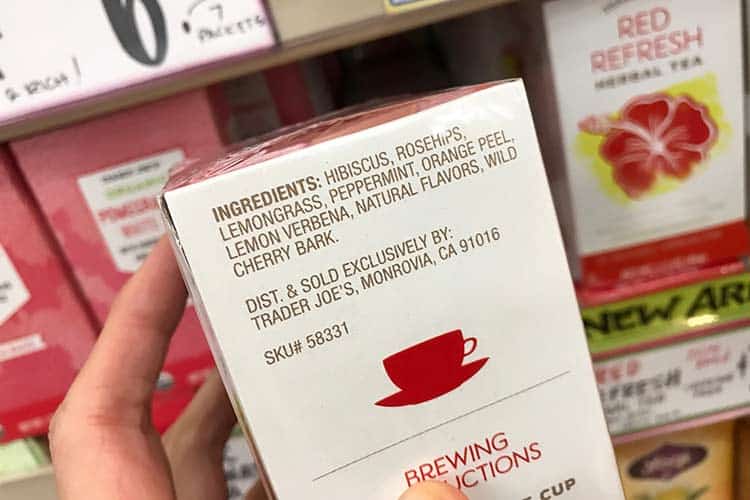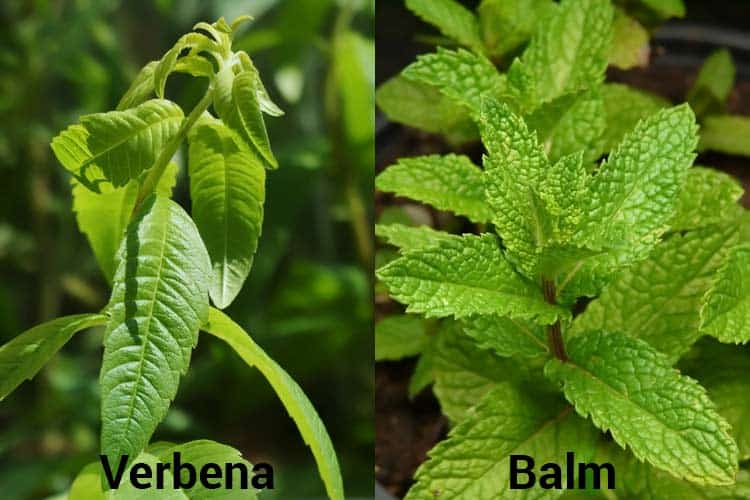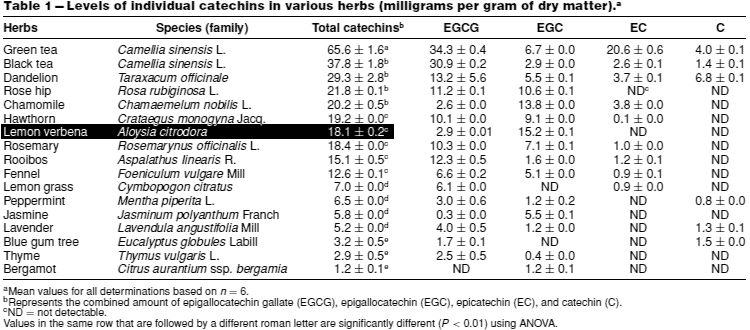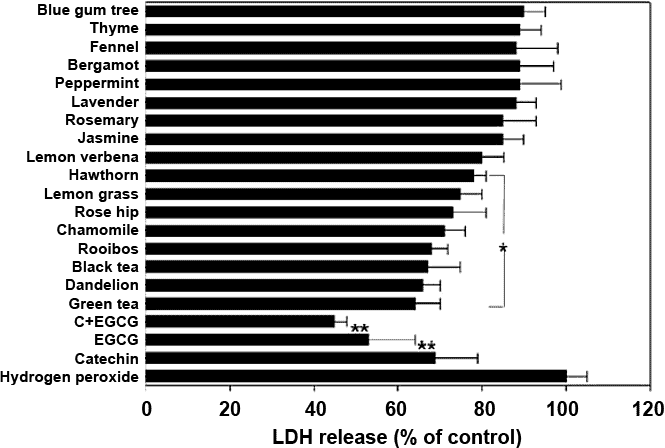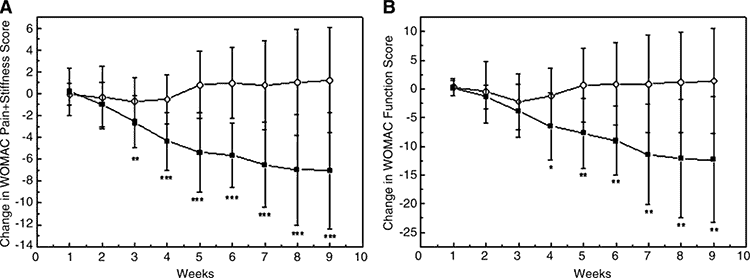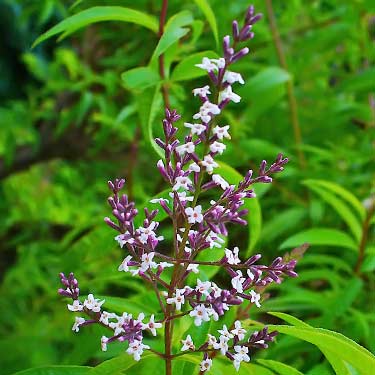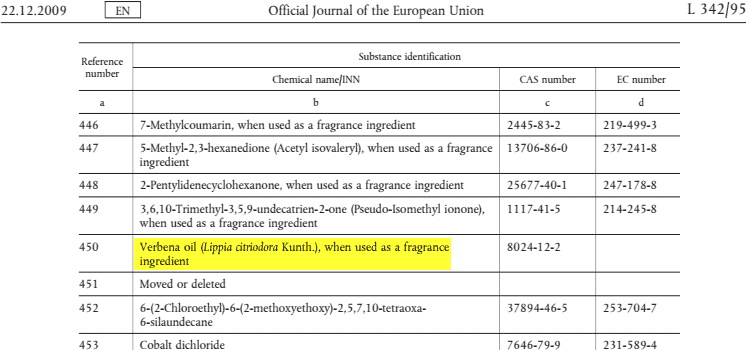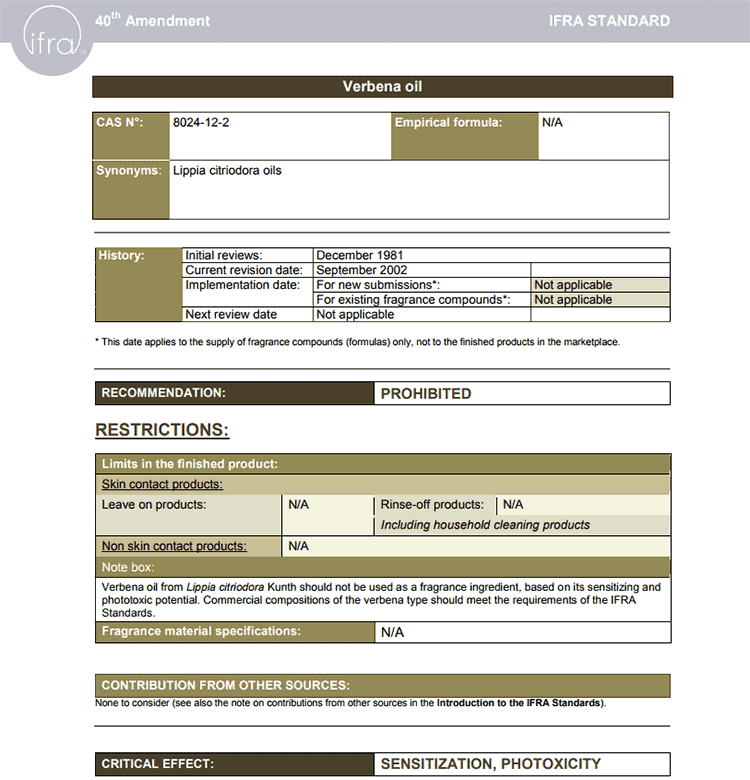[toc]
Are lemon balm and lemon verbena the same thing?
No. Lemon balm (Melissa officinalis) is part of the mint family and native to southern Europe. Lemon verbena (Aloysia citrodora) comes from a totally different family and its native habitat is on the other side of the world, in western South America. The only thing they have in common is a lemony-citrus scent when their leaves are rubbed.
Lemongrass (Cymbopogon) is entirely different from both of those.
It’s understandable why so many confuse these plants, because it’s lemon balm and lemongrass which are the most popular. Not necessarily because they are better though.
The obscurity of verbena has a lot to do with that.
Since no one knows what it is, food manufacturers and grocers in the U.S. and Canada don’t want to risk selling it. This herb costs a lot, so it could be an expensive gamble to have this tea occupy shelf space and go unsold. Likewise for the fresh leaves in produce, which would go bad within days.
The result? No one experiences it and the cycle of obscurity continues!
True, there is a shampoo by Nature’s Gate that blends it with chamomile and L’Occitane lemon verbena perfume you can get on Amazon. Though by and large, no one sells it.
Where to buy lemon verbena tea? In a big city like Los Angeles, you would think it would be at some of higher-end food stores. Nope. We can’t find it for sale anywhere, let alone the dried leaves or liquid extract for cooking. Even the mixed foods with a long shelf life, like lemon verbena vinegar or jelly, are missing from the gourmet grocers.
Out of all places, the big surprise was finding it inside of a Trader Joe’s tea blend, as pictured above. Of course, even they’re afraid to sell it alone, so they blend it with other herbs and don’t mention it on the front label.
Other names for lemon verbena include lemon beebrush and the synonyms for its scientific name (Aloysia citrodora) which were used in years past; Aloysia triphylla, Lippia citriodora, Lippia triphylla.
What is it good for?
There are both culinary and medicinal uses of lemon verbena. The latter remain unproven, but it’s hard to deny the deliciousness of teas and dessert recipes made with the extract, like sorbet and ice cream. Body washes, lotions, and perfumes use the scent, as do household cleaners like dish and hand soap. For aromatherapy, it’s in candles and essential oils.
Very little research exists on this plant. In fact, if you search the NIH’s PubMed database for its scientific name, you will barely get 20 results.
With the exception of the basic nutrition facts covering things like calories, all of the health benefits being researched have far too little research to be considered proven. Yet they do shed a glimmer of what potential the plant might have, if only it were given more attention.
Lemon verbena benefits and uses
1. Good for weight loss
Before we talk about what it does have, let’s talk about what it does not.
There are no calories, no fat, and no other bad things that you would want to avoid while dieting.
Can you eat lemon verbena leaves? Yes, they are non-toxic and perfectly edible. Nutrition facts for them are not in the USDA database, though one can presume that their calorie count is comparable to lettuce… almost nothing!
The entry for the tea supports that premise…
| Organic Lemon Verbena Herbal Tea | |||
|---|---|---|---|
| Serving Size: 1.3g dried leaves per cup | |||
| Calories | 0 | ||
| Calories From Fat | 0 | ||
| % Daily Value* | % Daily Value | ||
| Total Fat 0g | 0 | Vitamin A | 0% |
| Trans Fat 0g | Vitamin C | 0% | |
| Sodium 0mg | 0 | Calcium | 0% |
| Total Carbs. 0g | 0% | Iron | 0% |
| Fiber 0g | 0% | ||
| Protein 0g | |||
| *Percent Daily Values (DV) are based on a 2,000 calorie diet Source: USDA National Nutrient Database (1) |
|||
It’s caffeine free, too.
Technically there is probably 1 to 3 calories in a cup, however nutrition labels are allowed to round <5 calories to zero and list that.
Of course, the low calorie and no fat nutritional advantages are hardly unique. The same can be said about almost all teas. However there is another reason why lemon verbena is good for you. It contains high amounts of catechins, which are the same polyphenols found in green tea that are believed to be at least partly responsible for supporting weight loss. (2) (3)
2. Among the highest antioxidant teas
While catechins might be good for losing weight, there’s much greater evidence of their potent antioxidant activity.
Very few herbal teas contain high quantities of catechins, with lemon verbena tea being an exception. The average brewed cup, made using the dried leaf, ranked among the top 10 for catechin content in one study.
It has about the same amount as chamomile and hawthorn. Dandelion and rose hips are the only non-caffeinated herbal teas that score higher. (4)
3. Reduces lung cell damage in lab research
The same above which looked at antioxidants also evaluated it for antiproliferative actions.
In other words, whether the actions of the herbs might offer cancer preventive properties. To find out, they used cultured hamster lung cells.
Hydrogen peroxide was used to inflict damage on these cells. Then they measured how much lactate dehydrogenase (LDH) was released by the cells.
The more LDH released, the worse the damage was.
Here’s how lemon verbena extract measured up…
The worst damage was with the bottom line, which was pure hydrogen peroxide without added herbs.
When the plants were added, less damage was done to the cells. Verbena herb extract ranked right around the middle, offering better protection than rosemary, lavender, peppermint, bergamot, fennel, thyme, and blue gum tree.
To reiterate this was just one lab study. No one knows if this beneficial effect happens inside of an actual body.
4. Kills head lice when applied topically
In the United States, Canada, and United Kingdom, the only approved medicinal treatments for head lice involve chemicals which are linked to adverse reactions, as well as safety concerns.
In recent years, a great deal of research has been published about essential oils possibly being a natural alternative to get rid of head lice. One of them is lemon verbena oil. In lab tests it didn’t work as well as thyme oil, but it still had a moderate effect against these parasites as well as their unhatched eggs.
As part of the same study, the scientists then tested the EOs on the skin of rabbits to see if there were side effects. After the measured intervals of 3 minutes, 1 hour, and 4 hours, there was no evidence of edema or erythema (redness) of the skin, which suggests that it was well-tolerated. (5)
Another study even found it to work against permethrin-resistant head lice. (6)
Since the essential oil was made from the leaves, it would mean the dried tea would also have those active ingredients, albeit only in trace amounts.
5. Natural mosquito repellent

Does lemon verbena repel mosquitoes?
This herb has been traditionally used as a natural insect repellent. Bunchings of it would be hung on doorways and the leaves would be tossed on the grounds of horse stables, so as they trampled it, the lemon scent would be released and deter flies. As with citronella oil, mosquitoes hate the scent of lemon verbena.
Best of all, using a concentration of 12.5%, researchers found that it was among the top 3 longest lasting essential oils for repelling mosquitoes. The others were rosemary and Baccharis spartioides, which is a flower of the daisy family. (9)
Check out the full list of natural bug repellents.
6. Natural insecticide
Mosquitoes aren’t the only insect which hate this stuff!
Parasites and pests in the garden and field may also benefit from this plant’s essential oils.
It has shown toxicity against the green stink bug (Nezara viridula). That’s an insect which damages developing fruits and pods, by sucking out sap and injecting toxic substances in the process.
One natural way of controlling the stink bug is Trissolcus basalis insect, which feeds on its eggs. So any oil used as a pest control for stink bugs needs to be safe for the Trissolcus basalis. Preliminary research out of Argentina suggests just that when it comes to this herb. (7) (8)
7. Improves joint function in human study
There’s only one human clinical trial that’s been done on this plant. It was a randomized, double-blinded, and placebo controlled study for joint pain and stiffness.
45 people with joint problems were given a placebo or a supplement which contained lemon verbena leaf extract and omega 3 fish oil. Each group took these for 9 weeks.
Results were based on the Western Ontario MacMaster (WOMAC) and Lequesne’s questionnaire, both of which are well-established methods for measuring symptoms of joint diseases, such as osteoarthritis and rheumatoid arthritis.
The bottoms lines are for the group that got the omega 3 and lemon verbena supplement. Their pain, stiffness, and function improved dramatically versus placebo.
Since omega 3 was part of the treatment, it’s impossible to know how much of the anti-inflammatory effects were from the herb. Still, it’s preliminary evidence that it might be good for arthritis. Who knows, perhaps someday they will find it’s a benefit from drinking lemon verbena tea daily or regularly. (10)
8. Anti-tumor activity seen in research
Angiogenesis is the process of growing new blood vessels. It’s a requirement for tumors to grow larger, as they need new blood supplies to deliver nutrients.
A university in Jordan tested 31 local medicinal plants in the lab to find out which ones might inhibit this process (being antiangiogenic). They also tested them against cultured breast cancer cells, using the MCF-7 line which is popular in cancer research.
A number of these plant extracts demonstrated antiangiogenic activity, including lemon verbena. (11)
9. May fight candida yeast
If you’re not familiar with the Candida fungus, it’s the cause of oral thrush and many vaginal yeast infections. Then there’s candidiasis, which is the name given to an seemingly chronic infection of the small intestines.
Researchers at a university in Brazil chose 35 local plants which have traditional medicinal uses. Their essential oils were tested in the lab against cultured candida yeast infections. It was found that 13 of the 35 had anti-candida activity, including the one made from this plant. (15)
To be clear, they haven’t yet tested it in living organisms and it would not be safe to drink the essential oil of lemon verbena in quantity, or any other plant for that matter.
This is because essentials are made of volatile compounds which are quite different than the stable oils you cook with. That being said, inevitably there’s at least some of the oil essence in the tea of lemon verbena.
10. Antibacterial

Benzaldehyde suppresses the central nervous system. Benzyl acetate is a known carcinogen. Triclosan adversely affects hormones and worst of all, it doesn’t seem to work very well for its claimed use of being antibacterial and killing germs. (12)
It’s no wonder more people are demanding safer, more natural alternatives!
The leaf extracts of lemon verbena did not show antibacterial effects against Streptococcus mutans and Streptococcus sobrinus when tested in the lab using well plates. However, Moroccan researchers have found that the essential oil has moderate antimicrobial effects against E. coli and on S. aureus infections which were cultured in Petri dishes. (13) (14)
So with this ingredient, you might be getting two benefits for the price of one. The fresh scent of lemon zest, along with natural antibacterial potential.
Which products use it? Try Mrs. Meyer’s lemon verbena hand soap. You can buy a 3-pack on Amazon.
11. Better lemon flavor for recipes
What does lemon verbena taste like?
It’s like lemon zest but stronger. Even when you compare lemon verbena versus lemon balm and lemongrass, most would agree that verbena offers the strongest flavor and scent among. This is an advantage for teas and other recipes, because you get a strong flavor without the acidity you would normally get from the citrus fruit it replicates.
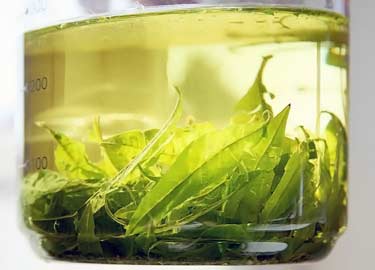
Cooking with lemon verbena offers many uses. It can substitute lemon in almost any recipe.
Because it tends to be more expensive, it’s typically reserved for fancier desserts. Not the type of ice cream or sorbet you will find for sale at your local Kroger!
French lemon verbena soup is a popular recipe. Using handkerchief pasta (fazzoletti) in a sauce made with the leaves is seen at some very high-end Italian restaurants.
The pure extract or absolute is used to enhance the taste of vinegars, juices, jams, vodka, alcoholic cocktails, and even kombucha. Some label the flavor as lemon beebrush, which is another name for the plant.
How to make the tea is simple
If using fresh leaves, take a quarter cup and infuse it in 1 cup (8 oz) of hot water. Let it steep for 10 minutes. Or if you have time, longer will lead to a more robust flavor. Then, you simply strain and serve. Pour over ice to make an iced tea.
The same can also be done using the dry leaves, which are more readily available since you can order them online. Get creative and combine with other herbs to make things like lemon verbena mint tea.
Frontier Organics sells a 1 lb. bag of organic cut and sifted leaves on Amazon.
12. Decorative purposes
What to do with lemon verbena extends beyond flavorings and perfumes. It produces beautiful stalks of flowers. The open petals are lavender in color, while the closed buds are violet.
They smell good too, with the clean scent of lemon.
If you live in a frost-free climate, then you can grow and use it as a striking decorative plant in your garden. Plus, you will be able to drink and eat lemon verbena leaves in your recipes.
It’s a multipurpose plant!
Lemon verbena side effects
- May irritate skin when used topically
- May increase sensitivity to light
- Bad for kidneys in large amounts
- Unknown safety during pregnancy
- Unknown safety while breastfeeding
- Potential allergen
Teas made with lemon verbena are quite popular in Europe, but you won’t see the oil used in fragrances there because it’s banned there.
The EU’s Cosmetics Regulation 1223/2009 has an extensive list of chemicals – both natural and man-made – that are prohibited for use. They do this for “substances which are likely to cause allergy to a significant part of the population.” Others are banned because they cause cancer, reproductive harm, mutate DNA (mutagenic) or are toxic in some other regard.
Annex II of this law lists all the substances prohibited in cosmetic products. With a total of 1,328 items, it’s a very long list!
Here’s what you will find for number 450…
That’s right, the pure essential oil is banned. The industry uses different names for this ingredient (16):
- Verbena oil
- Verbena oil (Lippia citriodora cymbopogon spp)
- Verbena absolute
- Verbena absolute (Lippia citriodora)
- Verbena (Lippia citriodora hbk.)
- Lippia citriodora oil
Regardless of the name used, it’s banned in wearable fragrances, such as perfumes, colognes, and body sprays. (17)
Why did the EU ban it? The final document doesn’t provide detailed explanations for the 1,328 chemicals, though you can turn to the International Fragrance Association (IFRA) for the answer, as it’s in their banned list too:
It’s a skin sensitizer, which means one is more likely to experience rash, itchiness, redness and other common side effects of skin irritants.
To be clear not everyone experiences that. It’s just that the chance is higher. Most people don’t experience any problems with body washes, shower gels, lotions, and hand soaps containing it. Even reviews by people with sensitive skin are positive. Products like those are much safer because the oil or extract percentage is so small.
The IFRA also classifies it as phototoxic, meaning it might make your skin more sensitive to UV light.
While it’s possible to be allergic to this plant, the good news is that the most common side effect – skin irritation – is not technically an allergy. It’s not caused by IgE antibodies. Rather, it’s that the pure oil is a known skin irritant, just as many other essential oils are.
Think of it like rubbing alcohol on your skin. If you swabbed on a 1% solution of alcohol, it would not hurt or cause any irritation. Do the same with a 70% concentration and it will burn immensely!
Drinking lemon verbena iced tea or eating the leaves in ice cream and the famous fazzoletti pasta recipe is something entirely different than the pure oil.
If you are pregnant, may become pregnant, or are breastfeeding, then to be on the safe side it would be best to avoid lemon verbena in all forms. As is the case with many herbs, it has not been studied in humans during these periods. There has only been one animal study which evaluated it in pregnant mice.
Complications and birth defects were similar to the control group of mice, so there isn’t really evidence of it being teratogenic (harmful to embryos or developing babies). Based on that, these Iranian scientists said this in their conclusion:
“The results of this study show that moderate consumption of L. citriodora as an infusion or tea appears to be safe to be used during pregnancy and does not have toxic effects on development of mouse embryo.”
That’s good to hear but can you believe that was the first study done and it wasn’t even published until 2016?! (18)
Until there’s data on pregnant women, it’s better to be safe than sorry and simply avoid it if you’re expecting.
Reportedly there is a “midwife labor cocktail” recipe that involves castor oil and lemon verbena to induce labor. If it’s even an old recipe is debatable and whether or not it works and is safe remains unknown. If you’re overdue, you need to talk to your doctor. Avoid this alleged labor inducing cocktail.
Verdict?
Not long after a European botanist brought it home from Buenos Aires in 1767, this herb has been popular for fragrance and teas in Great Britain, Spain, and elsewhere throughout Europe. It’s history is rich and the price tag is not cheap, yet the intense lemony zest is a flavor that everyone should at least try. With high antioxidant content and other health benefits being studied, it might be useful for more than just taste!
Where to buy
As stated at the start, this is one of the hardest teas to find. At least in the United States. Garden of the Andes makes an organic lemon verbena tea that you can pick up on Amazon. Naturally free of caffeine but full of flavor!
Major EO brands like Young Living and Doterra don’t sell it as an essential. You should not use it on your skin, but you can purchase it for making potpourri and cleaning products from Simplers Botanicals for a good price.
These statements have not been evaluated by the Food and Drug Administration. This product is not intended to diagnose, treat, cure, or prevent any disease.

